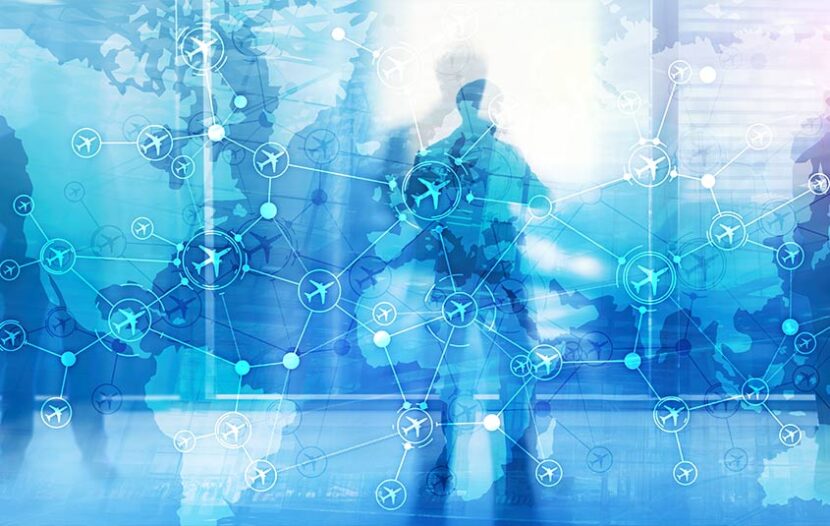TORONTO — They’re fine with masks. They’ve uploaded their vaccine passports. They might even be okay with the PCR test costs (for now at least). They’re Canada’s travellers, and after a year and a half with no trips, they just want a getaway already.
Even before the federal government lifted the blanket travel advisory two weeks ago, Canadian consumers were looking at travel in a much more positive light, according to stats from Expedia Group.
Leading up to the fall months, searches for international destinations from London to Las Vegas were already trending up, according to Expedia Group Canadian search data. The search data was mined from Expedia’s B2C consumer-facing sites. Expedia TAAP is the company’s B2B offering for travel advisors.
Expedia Group data also also shows that airfare prices are trending down as more capacity becomes available. While airfares booked by Canadian travellers for the first half of 2021 showed a return to pre-pandemic levels, Q3 is tracking lower than pre-pandemic levels (and significantly lower than mid-pandemic, 2020 levels). Airfare pricing levels have been dropping steadily and it looks as though Q4 2021 prices are beginning to balance out, says the group.
And while economy flight pricing is leveling out from previous highs, premium flight pricing didn’t rebound as quickly, says Expedia. That’s no doubt due in large part to corporate travel’s slower recovery: “In 2021, premium tickets were 193% more expensive than economy tickets compared with 2020 where they were 246% more expensive and 2019, at 260% more expensive. So, for travellers hunting for a good deal, 2021 is the year for premium air travel.”
In addition to Canada-specific data, Expedia Group also compiled a Traveller Value Index based on data from some 8,000 respondents in eight major markets – Canada, plus the U.S., the UK, Australia, France, Germany, Japan, Mexico and Australia.
According to that research, travel is now a top priority for many as the world comes out of the COVID-19 pandemic. Just how much? More than a third of those polled said they would trade a pay raise for more vacation days. And more than seven out of 10 respondents said they plan to take a trip in the next 12 months.
Key drivers as travellers reprioritize travel are new experiences (56%), physical and mental wellness (48%) and learning about other cultures and communities (51%).
Picking up on the bucket list trend, as travellers dream of splashing out on trips and exploring new destinations after months and months of travel restrictions, Expedia’s data shows that three-quarters of travellers say they’re likely to opt for a destination they’ve never been to before. More than a fifth (22%) say they’re seeking “once-in-a-lifetime experiences” for their next getaway.
Above all else, what are travellers prioritizing most these days? Experiences are key, and so is price, but what really unites all travellers is their need for flexible booking conditions, says Expedia.
While results for the Traveller Value Index questions varied from country to country, booking flexibility was the one area where respondents were remarkably consistent, says Expedia. That, and safe COVID-19 protocols: “Across travel segments – hotels, vacation rentals, air, car rentals, and cruise – travellers now value full refunds or enhanced cleaning above all other considerations. This is a significant shift from the conventional wisdom that price drives purchasing behavior. The shift in value from price to flexibility and cleanliness is consistent across the surveyed markets, reflecting the global scope of the pandemic and the universal need to restore stability after the time of vast uncertainty.”
To read the full article with more post-pandemic travel forecasts and insights, plus a look at corporate travel’s recovery from the WTTC’s report, click here.

